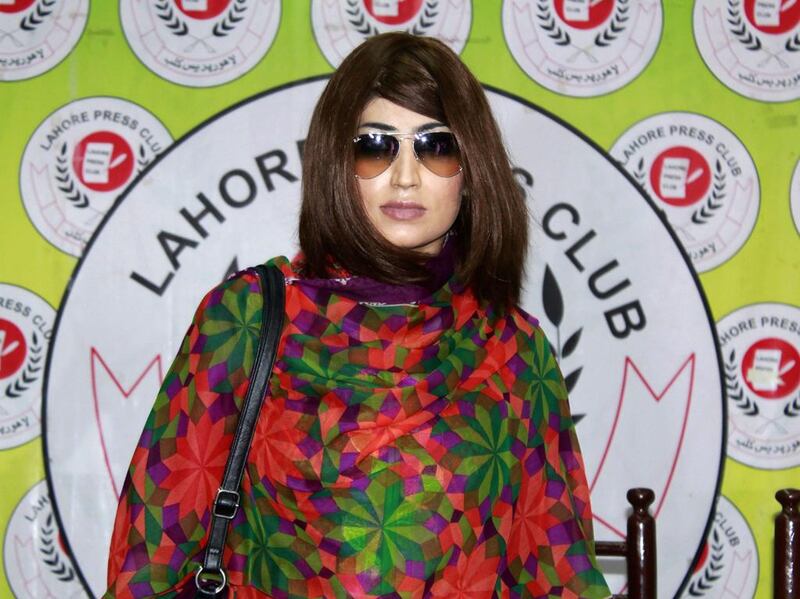Who was Qandeel Baloch? It is a question many had been trying to answer for a very long time. Last Saturday however, we knew the answer to the question of whether Pakistani society could handle Qandeel Baloch – it could not.
Qandeel's first notable foray into Pakistani pop culture was a catchy but forgettable music video called Touch of Lady. While it gave little clue of her future direction as a content creator/performer, it did show her desire to make a mark as well as a penchant for walking the line on what was deemed acceptable dressing for women in Pakistan. She was spotted next in 2013 on the local version of the TV franchise, Pakistan Idol, where once again she left a mark not for her music, but her ability to be a compelling sight on camera.
Throughout this time, the rise of smartphones meant millions of young Pakistanis were navigating unprecedented territory. In a society that focuses on familial bonds and traditions, youth now could live out the life their conservative society expected them to while also accessing ideas and media that would be considered controversial.
It was this emerging phenomenon that Qandeel capitalised on. She began posting videos on her social media pages which were most noted for her revealing clothing. It was why many described her as a Pakistani Kim Kardashian or Paris Hilton, linking her sex appeal with her celebrity. She had more than 43,000 Twitter followers and about 700,000 on Facebook.
Qandeel certainly pulled off some of the clichés associated with this millennial-era type of celebrity, such as promising to striptease on camera if Pakistan won a cricket match. But what made her a cult star was that she would pepper these videos with her fascinating stream-of-consciousness monologues.
In these she would call out the hypocrisies of Pakistani society and give withering responses to the haters. It was normal to see all sorts of threats against her on her Facebook and Instagram pages. Yet people kept coming back because they realised that beyond all the construction of Qandeel the character, there was a truth that she spoke.
This summer was when Qandeel broke out of the internet celebrity status and entered the mainstream. She was offered a role on the Indian reality show, Bigg Boss. She then posted selfies with a famous cleric, Mufti Abdul Qavi, which led to the latter being suspended from his post. The media completely latched on, inviting her onto talk shows with furious, outraged hosts questioning her actions. She released a new, racy music video mocking restrictions on women. Within the past few weeks, she was also featured on the BBC.
Much of the attention from the older, greyer media condemned her ferociously. Perhaps then, in a desire to put her in her place, journalists uncovered details of her past marriage, which she said she left due to abuse. In doing so, they revealed her real name as well.
From the strange, boundless world of the internet, she was now held up as an evil creature in the binary world of news media, with the all-important shield of her alias taken away and replaced by her family name.
Within days of the sudden surge of Qandeel in the mainstream consciousness, she was dead. One of her brothers confessed to strangling her for bringing dishonour to their family but it is thought at least another brother was involved. They had apparently threatened her several times.
Her father spoke of her bravery and how he wouldn’t forgive his sons. Her real name was Fouzia Azeem, and she was buried on Sunday morning in her village in the Punjab. She was just 26. It was a shocking, brutal and abrupt end to one of the most fascinating Pakistanis around. Instead of conforming to any societal expectations, she articulated the confusions, fears and dreams of young Pakistanis today. She understood how internet-driven popular culture loved the bizarre and the scandalous and she used that to put forth a charged agenda.
She wanted to be accepted on her own terms, without the politics of respectability that every Pakistani woman is expected to conform to. It was an idea that she lived up to and one that moved her own siblings to murder her.
Ahmer Naqvi is a writer on culture, music and sport. He is based in Lahore.










